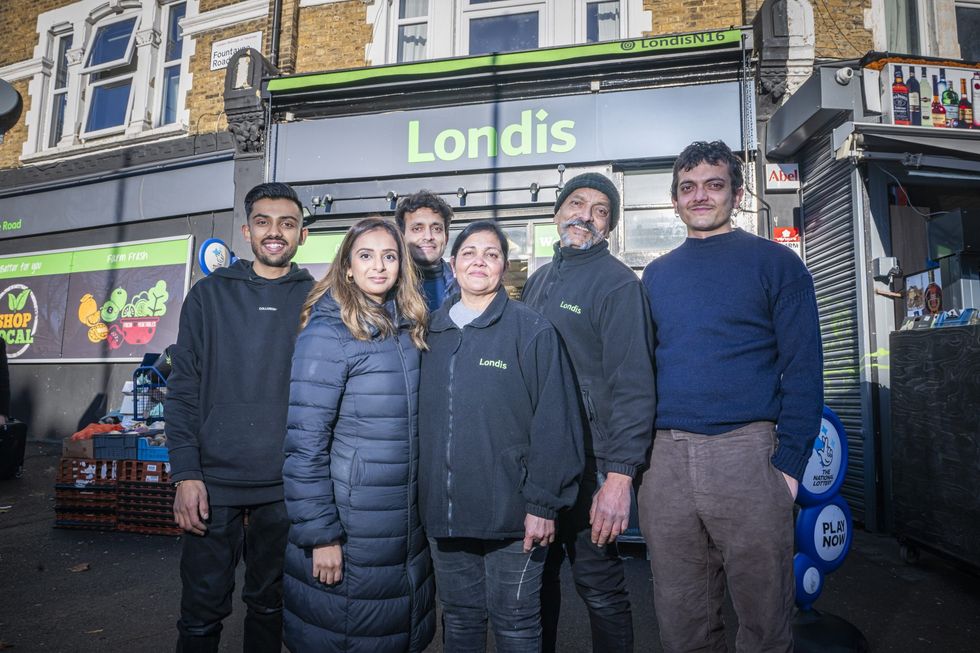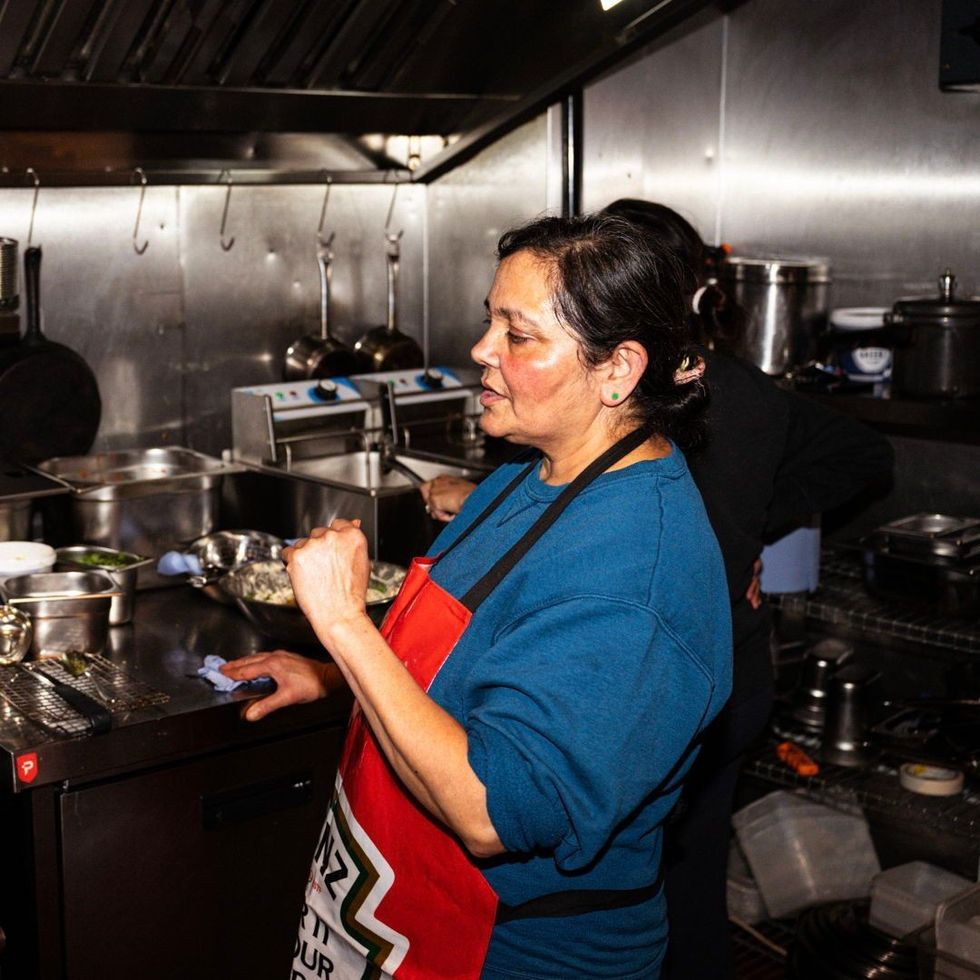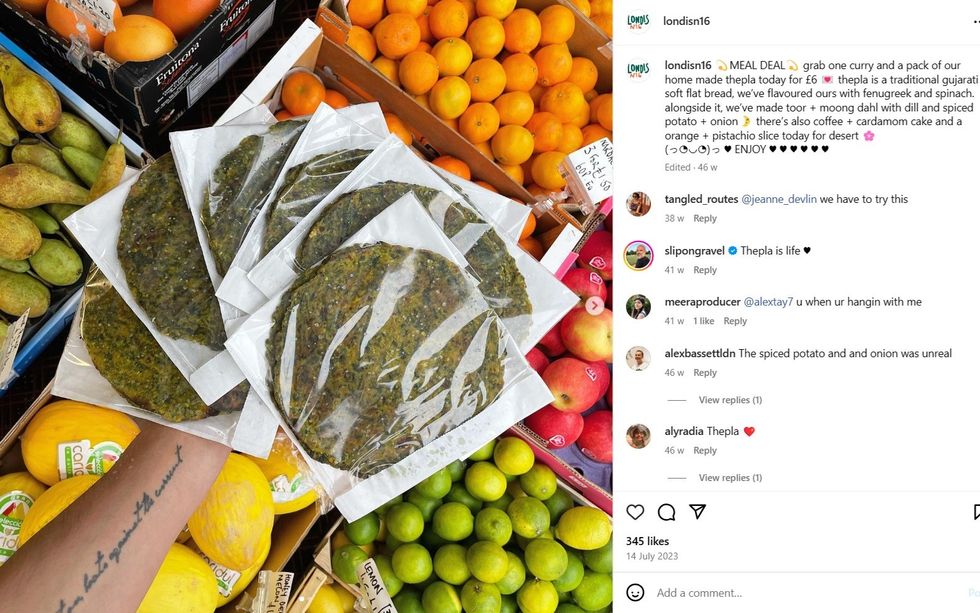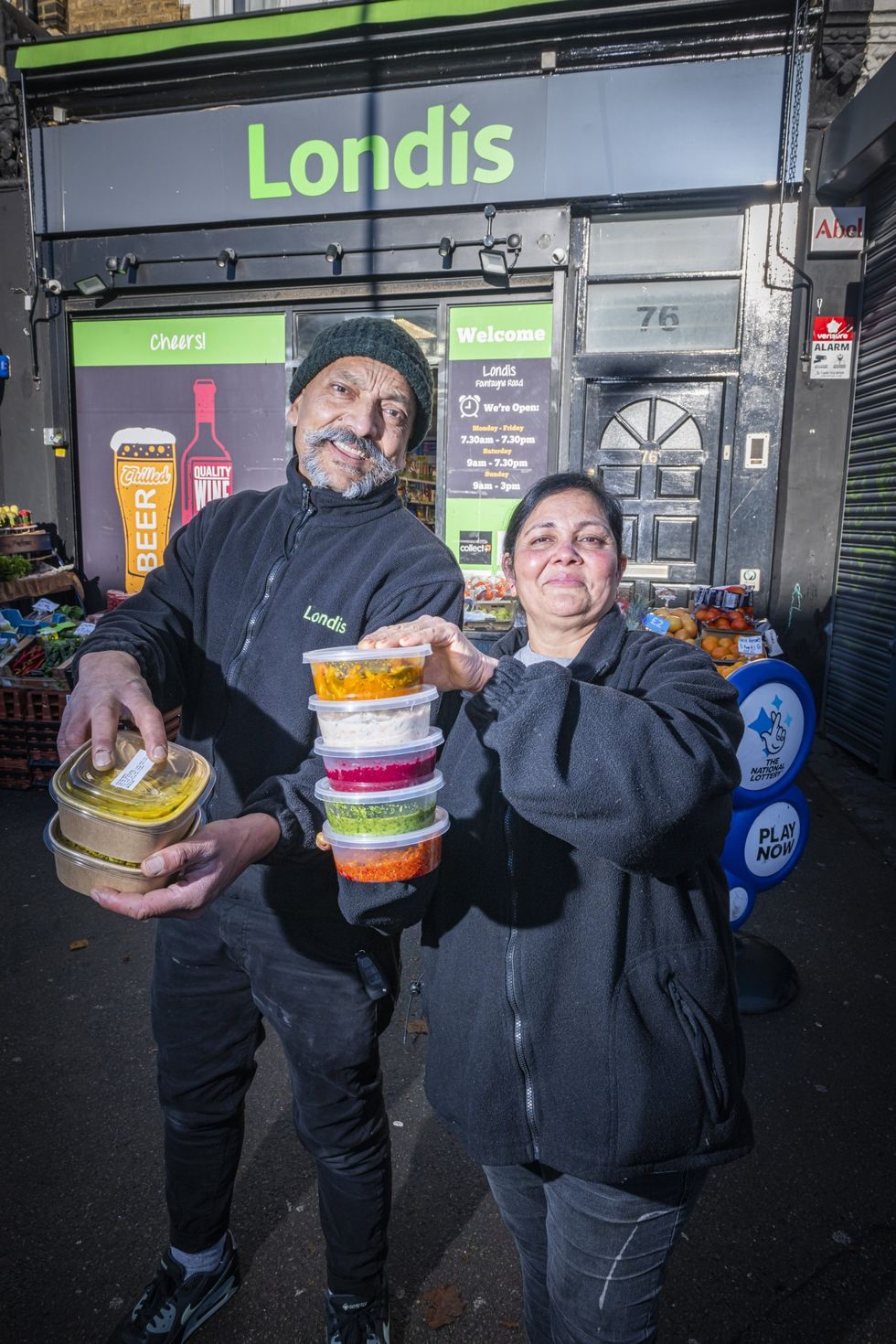When Karsan and Mahalakshmi Patel purchased a small shop in Hackney, London in 1979, after arriving first in Leicester from Zambia, few could have predicted their humble family business would one day be crowned “the coolest corner shop” in London.
Yet that's exactly what happened under the careful stewardship of their grandsons, Priyesh and Alpesh, who alongside their parents Mayank and Anju, have transformed Londis N16 in Stoke Newington into a culinary destination that draws food enthusiasts from across London and beyond.
“Hackney was a very different area back then,” Priyesh recalls. “People didn't really want to buy here or live here. It was a difficult choice to make. But I think my grandparents and my parents didn't really know anything about this area before.”
That leap of faith has paid dividends over four and a half decades later, as the shop has become woven into the fabric of Stoke Newington's bustling community. Winner of the Food to Go Retailer of the Year award at the 2024 Asian Trader Awards, its journey from conventional convenience store to award-winning food destination mirrors the transformation of the area itself.
The pandemic pivot
Though the store has always been in the family, Priyesh and Alpesh weren't initially destined for the retail business. “My parents always tried to tell us to go into further education,” Priyesh explains. Both brothers pursued higher education and careers outside the family business. “My brother did accounting, and he had a job for a few years. I did fashion- and art-related subjects.”
Their professional trajectories changed dramatically with the arrival of the COVID-19 pandemic. “We were working here and there at the shop all our lives, obviously. But during COVID, we started working here a lot more.”

Like many small businesses, Londis N16 faced existential challenges during the pandemic. But rather than succumbing to the pressures, the crisis became a catalyst for positive change.
“It was a lot of work, stock was dwindling,” Priyesh remembers. “The fear for small shops like ours, for the longest time, has always been that big supermarkets will always take over your business. But COVID really showed that smaller businesses were much better at keeping stock levels up than bigger businesses.”
As lockdowns restricted movement, locals began to appreciate the convenience and reliability of neighbourhood shops, “seeing it not just a convenience store, but also a place where you can pick up groceries and other items,” as Priyesh puts it.
More importantly, it changed, or rather reinforced, their approach to the shop. “My grandparents and parents always said that we need a small shop over a bigger shop, that we can build a community around our shop. We always have to focus on customers, be really receptive. COVID just strengthened that for us,” he explains.
A culinary hotspot
The shop's evolution into a food destination began well before the pandemic. As supermarket chains threatened the viability of traditional corner shops, the Patels knew they needed to differentiate.
“My parents always had this idea that we need to move our shop more towards deli style,” Priyesh explains. His mother Anju had always harboured a passion for cooking. “My mum, when I was really young, had an idea that if the shop goes under, we'll just turn it into a cafe with world food, and my mom will cook the food.”
That culinary vision became reality when Priyesh and Alpesh began working full-time in the shop, freeing their mother to focus on the kitchen. The result is a mouth-watering array of authentic Gujarati dishes and other Indian specialities prepared by Anju herself.
The offer enables shoppers to take away a full meal solution including starters, mains, sides and desserts – the latter of which are made by Alpesh’s wife Neelam.

“The core of our cooking is Gujarati food, and then we do a lot of general Indian cooking as well, like South Indian food and Punjabi food,” Priyesh says. The menu changes regularly based on seasonal ingredients, which Mayank sources daily from New Spitalfields Market.
This approach also allows the family to address another industry challenge. “For any grocery store that holds fruit and vegetables, there's a lot of food waste,” Priyesh notes. Customers naturally select the most perfect produce, leaving slightly marked but perfectly edible items unsold. The cooking operation cleverly repurposes these items, reducing waste while creating delicious meals.
On Tuesdays, Fridays and Saturdays, the shop buzzes with customers eager to purchase Anju's latest creations. “We always discuss the menu a couple of days before. My dad tells us what he's finding in the market, and then we make a menu based on that.”
The offerings vary by day: “We generally do like a more hearty dish on Tuesday, dal and rice or dal and a vegetable based dish. And then on a Friday, we do something a bit more celebratory, like a paneer dish, or something like that, takes a bit more work and skill.” Saturdays feature samosas and pakoras, fried South Asian snacks that have developed a loyal following.
Building a community
The Patels' commitment to quality and affordability has earned them devoted customers. “This is a passion project for my mom,” Priyesh emphasises. “We want to be able to put stuff out there that my mom feels creatively fulfilled, and that also we're providing for a wide range of people, and not just offering a high-price menu for the quality that we're putting out.”
This philosophy extends to their renowned supper clubs, where Anju's cooking can be enjoyed fresh at communal tables.
“For us, the opportunity to do a supper club, our main benefit is that we get to put food on the table that is freshly garnished,” Priyesh explains. “We can put stuff on there that people can eat straight away, that is going to be hot and similar to how we would eat it at home as well.”

Launched in 2023 and held in partnership with other local businesses such as Delli, Clapton Craft and Top Cuvee, “Anju’s Supper Club” has proven wildly popular, with tickets selling out in under an hour. Looking ahead, the family hopes to host smaller, more intimate events in their garden behind the shop.
“It's less pressure for us, because when we do other venues, we have to transport all the goods ... But if we do it in our garden, we're in our comfortable space. People know the shop,” he says.
Insta fame
Named the capital’s “coolest corner shop” by style magazine The Face, Londis N16's transformation into a culinary destination has been amplified by social media, particularly Instagram, where the shop boasts over 10,800 followers.
“I think the benefit that we have over other businesses when it comes to social media is that we don't have to have business Instagram,” Priyesh reflects. “We are family, we have real stories and our own lives and stuff.”

This authentic approach resonates with audiences tired of corporate marketing. “People really enjoy seeing a business on Instagram that isn't putting out something very businessy, that is quite personal. It seems like you're talking to customer, you're talking to the person reading it, and you're relating to current events.”
The social media success has brought customers from far beyond their local catchment area.
“The Instagram really gets the word out, and it definitely does further our general radius of a convenience store,” says Priyesh. “We've connected with so many people and other businesses and other Gujarati supper-club owners that we really admire a lot.”
The future of FTG
Priyesh sees the growing demand for convenient, high-quality food to go as a reflection of modern urban life. “People in London are working a lot, they're getting back later. Commute times are much longer, it takes an hour to get anywhere. People want convenience,” he notes.
Shopping habits are changing too, with fewer people doing large weekly shops. “People will just buy what they need on the day and come back the next day to buy what they need,” he says. This creates opportunities for shops offering ready-made meals and freshly prepared foods.
“Cooking for yourself and then cleaning up for yourself, you can take up the whole evening,” Priyesh observes. “We already have something ready-made. Then all you need to do is do a washing up after. And you don't waste a lot.”

The shop embraces local suppliers, working with approximately 30-40 different distributors beyond their main Londis supply chain. “A couple of our customers have made chili sauces for the shop. One of our customers currently is making us sausage rolls on Saturday. A few like pitta chips brand Soffle’s, they stocked in our shop the first time,” Priyesh notes proudly. “We're always trying to find local businesses and people to support.”
Despite their success, the family faces constraints. “We're a very small shop, and we don't really have any capacity to expand, because we have outlets next door to us,” Priyesh explains. This limitation forces creative merchandising solutions and continuous innovation.
For others looking to follow their path in food to go, Priyesh advises starting slowly and focusing on sustainability. “Try slowly. You want to make sure that you're putting out food, if people enjoy it, you can do it long term. So put into your timetable, so you can make it sustainable for you long term, that you can keep it consistent, because people like consistency a lot.”
Most importantly, he emphasises the power of storytelling and heritage. “People love a good story. I don't think we knew that we had a good story, but people are interested in it now ... Especially in London, people are liking old-school institutions, and people like wanting to respect people who have been in London for a long time, because London is becoming a big city with a lot of people moving in.”
In a rapidly changing London landscape, Londis N16 serves not just food, but connection to place, tradition, and community – one delicious dish at a time.






